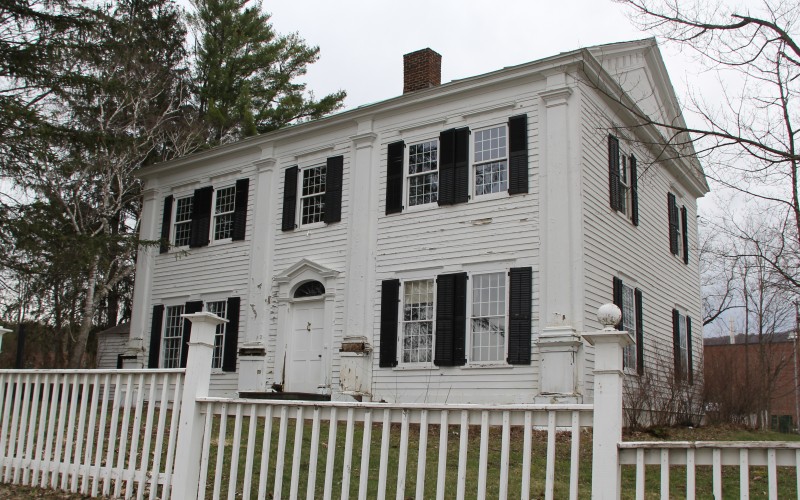Out of state students decrease at CSC
Most students return from summer excited to start the new year, but some students, like Martina Marchese, return knowing it’s going to be their last.
“This summer I started talking to my mother about the process of applying to SUNY Albany,” the Castleton sophomore said.
The decision to leave was not hers, she said, but necessary due to “financial issues”. Along with two brothers, her single mother, like so many parents, was unable to make ends meet.
“Albany is not easy to get into to begin with,” Marchese said. It’s not leaving the college that bothers her most. “It’s the friends group. I made some very, very close friends and it’s going to be difficult to leave.”
For returning students the economy has not been forgiving. Furthermore, the returning out of state student population seemed light this year, however. Fifty students light.
But Dean of Enrollment Maurice Ouimet says there aren’t any red flags.
“It’s not so much a retention issue,” Ouimet said. “That’s basically the difference in the number of out of state students we had in the last year’s incoming class compared to this year.”
Ouimet said that due to demographic shifts, there are fewer high school graduates than a few years ago. He also said that it could be expected to see enrollment numbers decline over the next few years, as students will look for advantages such as colleges closer to home and with cheaper tuition.
Wells Hunter, a former Castleton freshman from
Massachusetts, had made the decision to withdraw her enrollment and apply to Bridgewater State University in Massachusetts.
“Mostly it was the tuition,” Hunter said. “A little expensive with a parent out of a job.”
Along with traveling expenses, her family also has two other younger daughters who were “definitely a consideration” for the future.
“I had so many people come back to me saying, ‘Why aren’t you coming back?'” Hunter recalled, adding that she hopes to come back and visit this Columbus weekend.
It’s not only the students and parents who see the results of the economic crunch, but professors recognize the difficulty as well.
“We rank 50 out of 50 in terms of state support for education,” said sociology professor Linda Olson, who is also president of the Vermont State Colleges Faculty Federation. “So we’re dead last, or we’re 49. Either figure is pretty bad.”
Olson believes it’s finally time for the state of Vermont to “step up” and provide better financial help for all students.
“I do know that our students are paying too much in tuition…In fact we are planning to have campus-wide rallies to bring attention to this issue,” Olson said.
The rallies, headed by the Faculty Federation and United Professionals unit, are intended to put pressure on the state legislature to support higher education.
“That’s the main message that we need to make sure people hear,” she said.
Even with 50 fewer out of state students, Scott Dikeman, Castleton’s dean of administration said, “it wasn’t a complete surprise.”
“In the spring when we were budgeting we had anticipated it,” Dikeman said. “Certainly if we had double that, that would have been a complete shock.”
Double would have meant 100 fewer out-of-state incoming freshman at $29,658 a pop, almost $3 million, which would be tough to absorb from an almost $44 million budget.
“We’ve built up too much momentum and there’s been too much of a positive trend to see that sort of drastic fall off,” Dikeman said. “If we’re smart in our budgeting we shouldn’t have any issues.”
Even with rising tuition throughout the Vermont State College system, Lyndon State has enrolled more out of state students. “Eighteen to 20 percent more,” said Keith Chamberlin, Lyndon State’s Director of Communication and Marketing.
Chamberlin believes Lyndon’s unique professional studies such as meteorology, mountain recreation, music business and industry, and electronic journalism are “magnets” that attract out of state students because they “simply don’t exist in huge numbers in other places.”
Some students say college tuition is a necessary evil that “is what it is,” but that provides a door opening to many possibilities.
“It’s expensive no matter where you go,” said sophomore Drury Douglas. “It’s an investment that will pay back in the future, that’s the important thing.”



